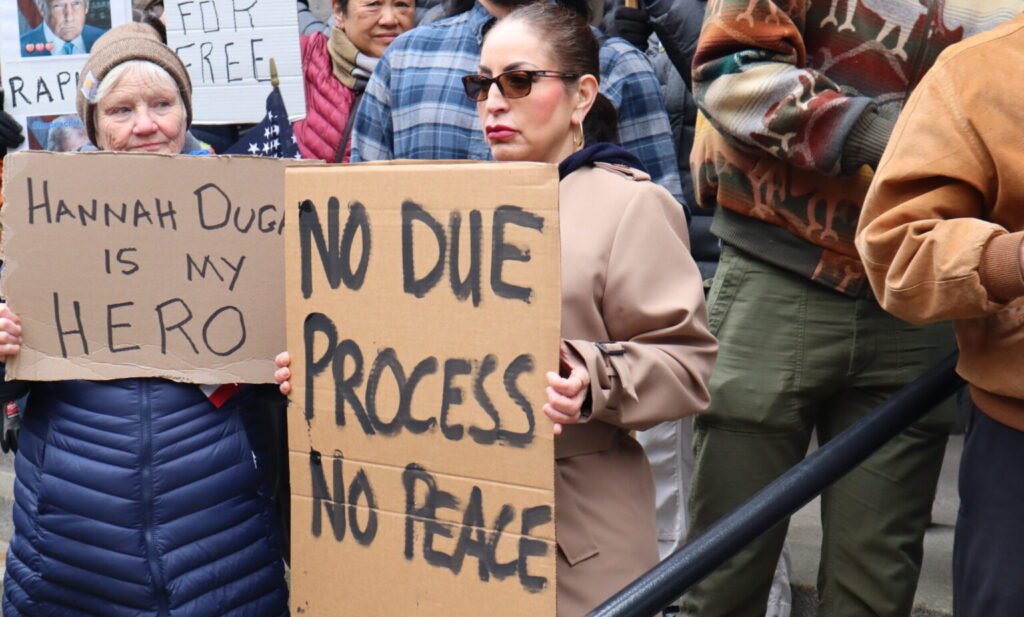The arrest of Milwaukee County Circuit Judge Hannah Dugan on April 25, 2025, has sparked intense discussion nationwide about the balance between judicial independence and federal immigration enforcement. Accused of obstructing a federal immigration arrest operation, Judge Dugan now faces serious charges that highlight ongoing tensions between local courts and federal authorities. This article explores the incident, the charges against Dugan, community reactions, and what this means for immigration policy and the judiciary.
Who Is Judge Hannah Dugan?
Judge Hannah C. Dugan, born in 1959, has served on the Wisconsin Circuit Court since 2016. Known for her dedication to legal aid and vulnerable populations, she previously led Catholic Charities in southeastern Wisconsin and has taught law at Marquette University and Seattle University. Dugan is respected in Milwaukee’s legal community, having served as president of the Milwaukee Bar Association.

The Incident: What Happened at the Milwaukee Courthouse?
On April 18, 2025, ICE agents arrived at Milwaukee County Courthouse to arrest Eduardo Flores-Ruiz, a 30-year-old Mexican national with a prior deportation and current misdemeanor battery charge. According to federal affidavits and news reports, Judge Dugan was informed of the ICE warrant before Flores-Ruiz’s court appearance.
When ICE agents waited outside her courtroom, Dugan questioned whether they had a judicial warrant. Upon learning they only held an administrative warrant, she reportedly directed the agents to consult the court’s chief judge. She then postponed the hearing and instructed Flores-Ruiz and his attorney to exit through a private jury door, avoiding the area where ICE agents were stationed.
Flores-Ruiz fled the courthouse but was later apprehended nearby and is now detained at the Dodge Detention Facility in Wisconsin.
FBI Arrest and Charges Against Judge Dugan
Following an FBI investigation, Judge Dugan was arrested on April 25, 2025, at the courthouse. FBI Director Kash Patel announced the arrest on social media, stating that Dugan “intentionally misdirected federal agents away from the subject to be arrested.” She faces felony charges of obstruction of justice and concealing an individual.
Dugan appeared briefly in federal court and was released pending further proceedings. Her attorney expressed regret over the arrest, emphasizing that her actions were not intended to compromise public safety. Her next court date is set for May 15.
Community Reaction and Political Fallout
The arrest has divided opinion. Supporters argue Dugan was defending judicial independence and due process, while critics claim she undermined federal immigration enforcement and public safety. Protests erupted outside the courthouse, with chants supporting the judge.
Officials from the Trump administration have framed the case as part of a broader crackdown on obstruction of immigration enforcement, underscoring their commitment that “no one is above the law.”
Broader Implications for Immigration and the Judiciary
Judge Dugan’s arrest highlights the complex relationship between local courts and federal immigration authorities. Legal experts warn that the case could set important precedents regarding judicial discretion in immigration matters and cooperation with federal law enforcement.
For those interested in the broader context of immigration enforcement and legal challenges, the Department of Homeland Security’s official immigration enforcement page provides detailed information.
Related Coverage on Judicial Controversies
This incident is one of several recent cases involving judges and legal officials facing scrutiny over their roles in law enforcement actions. For more on similar judicial controversies and their impact on the legal system, see our in-depth article on Judicial Accountability and Controversies in the U.S..
Conclusion
The arrest of Judge Hannah Dugan is a significant event underscoring ongoing tensions between immigration enforcement and judicial independence. As the case progresses, it will be closely watched for its potential impact on how judges interact with federal authorities and the future of immigration law enforcement in the United States.
Also Read https://scoopusa24.com/virginia-giuffre-prince-andrew-jeffrey-epstein-accuser-dies-suicide/
